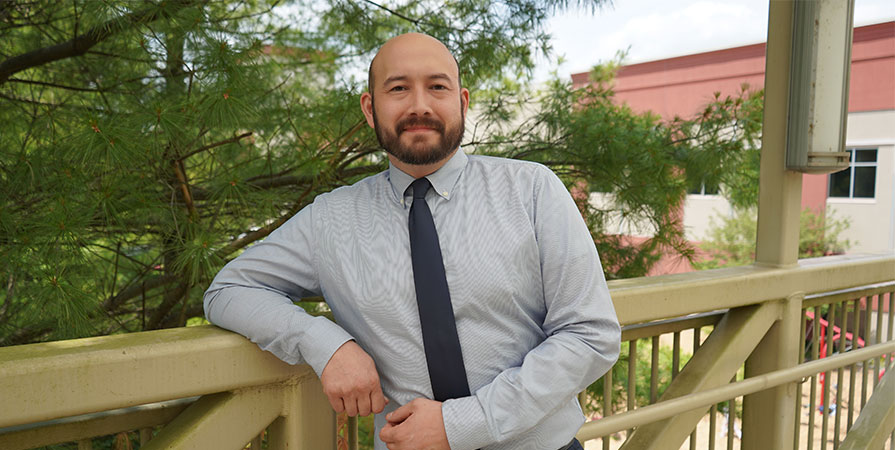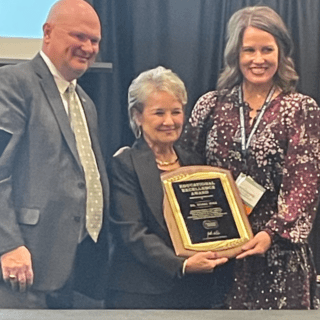
Andy Weatherhead Named President of NSELA
One of the nation’s largest organizations for developing science education leaders is now led by a University of Pittsburgh School of Education alumnus.
Andy Weatherhead (EdD ’18) is the new president of the National Science Education Leadership Association (NSELA). Founded in 1959, NSELA strives to support emerging and established leaders in science education within K-12 school districts and colleges/universities.
“It is humbling to serve in a position of this caliber for the first time,” says Weatherhead. “I’m very appreciative of the trust placed in me and the support I receive from NSELA’s members.”
Weatherhead, who is a STEM and innovation specialist at the Chester County Intermediate Unit in the suburbs of Philadelphia, Pennsylvania, began his presidency in June 2024.
He says one of the most pressing issues facing science education in America is the growing shortage of K-12 teachers.
“The pool of teachers and teacher leaders in the education system is getting smaller. We have to spend more time and resources to ensure that we support everyone no matter what their path is in the leadership space,” says Weatherhead.
NSELA provides professional development, a network of peers, and access to research and resources. Its approximately 800 members include teachers, school administrators, and college faculty.
Among NSELA’s biggest events is its Summer Leadership Institute. The 2024 conference on “Science Learning for Sustainable and Just Futures” will be held in Seattle, Washington, from July 16-18.
Inspired by the recent reports from the National Academies for the Sciences, Engineering, and Medicine, NSELA started the process of creating a position statement on the importance of enhancing science education by laying a strong foundation among elementary-aged students.
“It’s so important to have that foundational emphasis in elementary and making sure that students are developing strong identities as they move into middle school and beyond,” says Weatherhead. “It has to continue across all areas: K-12 and the informal community space.”
A former elementary school teacher himself, Weatherhead decided to leave the classroom for a professional learning role.
He credits his time in the Pitt School of Education’s Doctor of Education (EdD) program for making that transition a smooth one. In particular, the STEM Education major gave him a strong foundation in theory, practice, and a professional network.
“As I moved through my career post-doctorate, it’s become evident how well the EdD program has supported me in growing as a professional in the science education community,” he says.




